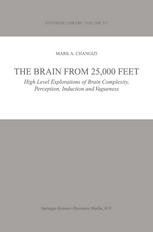

Most ebook files are in PDF format, so you can easily read them using various software such as Foxit Reader or directly on the Google Chrome browser.
Some ebook files are released by publishers in other formats such as .awz, .mobi, .epub, .fb2, etc. You may need to install specific software to read these formats on mobile/PC, such as Calibre.
Please read the tutorial at this link: https://ebookbell.com/faq
We offer FREE conversion to the popular formats you request; however, this may take some time. Therefore, right after payment, please email us, and we will try to provide the service as quickly as possible.
For some exceptional file formats or broken links (if any), please refrain from opening any disputes. Instead, email us first, and we will try to assist within a maximum of 6 hours.
EbookBell Team

4.7
46 reviewsIn The Brain from 25,000 Feet, Mark A. Changizi defends a non-reductionist philosophy and applies it to a variety of problems in the brain sciences. Some of the key questions answered are as follows. Why do we see visual illusions, and why are illusions inevitable for any finite-speed vision machine? Why aren't brains universal learning machines, and what does the riddle of induction and its solution have to do with human learning and innateness? The author tackles such questions as why the brain is folded, and why animals have as many limbs as they do, explaining how these relate to principles of network optimality. He describes how most natural language words are vague and then goes on to explain the connection to the ultimate computational limits on machines. There is also a fascinating discussion of how animals accommodate greater behavioral complexity. This book is a must-read for researchers interested in taking a high-level, non-mechanistic approach to answering age-old fundamental questions in the brain sciences.